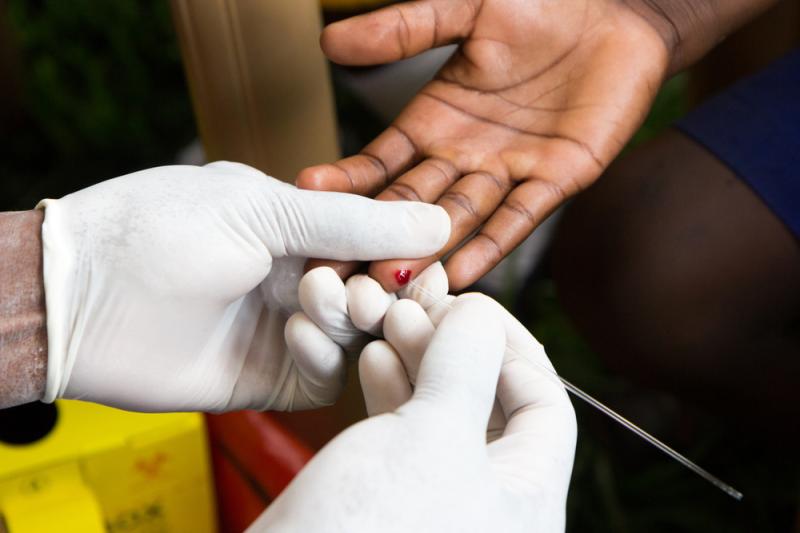
Antibody-based rapid tests for SARS-CoV-2 appear to have suboptimal sensitivity and is inferior to reverse transcription-quantitative polymerase chain reaction (RT-qPCR), according to a recent study.
“While rapid point-of-care testing is critically needed, the current evaluation of an antibody-based system demonstrates only low sensitivity and is therefore not recommendable to detect potential infections as a stand-alone test,” researchers said.
The study included 49 participants (median age, 46 years; 49.0 percent female) who were randomly enrolled from a coronavirus disease 2019 (COVID-19) testing centre. Stored serum samples from 10 diagnosed individuals were also included. Of the participants, 22 tested positive through repeated RT-qPCR, while 27 returned negative. [Public Health 2020;doi:10.1016/j.puhe.2020.04.009]
In comparison, 77.6 percent (n=38 of 49) of the rapid test results came back negative. Of the remaining 11, only four tests showed a strong response, while the signal was weak in seven tests; both were considered to be positive results. There were no reports of a singular IgM response, which would have otherwise indicated an acute infection.
Using PCR test results as a reference, eight antibody test results turned out to be true positives. Three were found to be false-positives and 14 were false negatives. Twenty-four results returned true negatives.
The rapid test yielded a sensitivity of 36.4 percent and a specificity of 88.9 percent. Taking a COVID-19 prevalence rate of 44.9 percent, the positive and negative predictive values of the antibody test were 72.7 percent and 63.1 percent, respectively.
“We … evaluated a rapid antibody immunoglobulin (Ig)-G/IgM-based testing system in the community setting for its ability, specificity and sensitivity to reliably identify infected individuals,” the researchers said. The findings suggest that rapid testing “should therefore neither be used for individual risk assessment nor for decisions on public health measures.”
In the present study, researchers compared the RT-qPCR gold standard to a qualitative IgG/IgM rapid detection system, which seeks to detect current or past SARS-CoV-2 infections and provides results within 15–20 minutes. Participants presented largely with dry coughs (70.8 percent), fatigue (64.6 percent) and a runny nose (45.8 percent). Five were asymptomatic.
Participants who had tested positive reported a median of five symptoms, while those who tested negative only had four. The probable date of infection was identifiable in 22 patients. Tests were administered a median of 18.5 days after exposure.
“[L]aboratory methods to detect SARS-CoV-2 infection rely on RT-qPCR testing that require longer time for sample handling, preparation and diagnosis,” the researchers said. However, the rapid test assessed in the present study proved to be “substantially inferior.”
“As there is an urgent need for a sufficient rapid testing system for SARS-CoV-2, an antigen-based system may therefore be more appropriate,” they added. “We recommend accelerating the development and evaluation of effective point-of-care testing systems.”